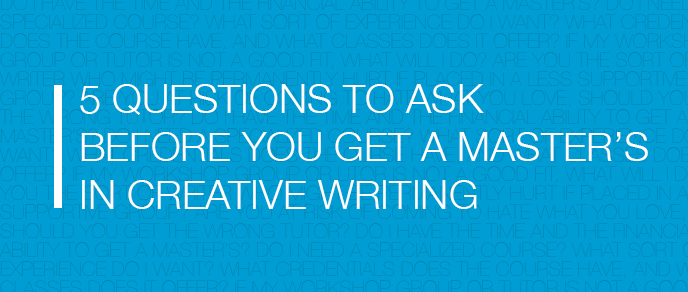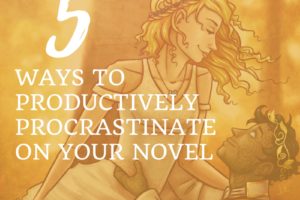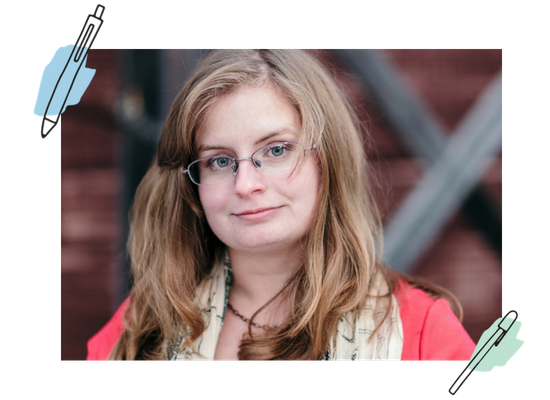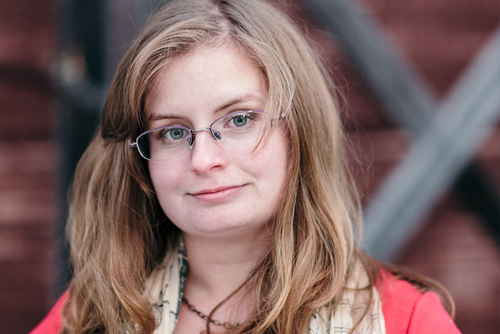I’ve just completed my master’s degree in Writing for Young People at Bath Spa University, and MAWYP has also just celebrated its 10th birthday. Yay!
Below are some of the questions I asked myself when I first started thinking about getting my master’s, and some of the questions (now that I’m at the end) I wish I would’ve asked.
I hope this post isn’t a running advertisement for BSU, but I am biased. Master’s programs are very different depending on where you go and who you’re with and what you want, so I only have my own (and my classmates’) experience to draw on.
And to thou pitchfork wielders, let me add a disclaimer: Getting a degree does not mean you’ll get published, and you can (obviously) be a fabulous writer without a degree. However, getting a degree can be a valuable experience—and, besides, it’s really fun.
1. Do I have the time and the financial ability to get a master’s?
Time: Everyone’s time has different pulls. When I decided to go for my master’s, it was because I felt like a short period of concentrated work and mentorship would push me forward several years of individual trial-and-error. At the end of this, I have to say my instincts were true—the growth of my writing in the last twelve months has been pretty insane. The experience also forced me to say to myself and the world that this is not my hobby, this is my job.
An important consideration, once you decide you want to put the time into a degree, is to decide how much time, and at what level of intensity (full-time or part-time).
One thing I liked about creative writing master’s programs in the UK is that most of them only take a year full-time (instead of two-to-four years, depending on the US university). This is because the US tends to award Master in Fine Arts (MFAs) instead of Master of Arts (MAs)—the main difference, as far as I understand it, is that there is a teaching component to most US master’s degrees.
Money: Degrees cost money. There are scholarships available for postgraduates, but they are often few and far between. It’s worthwhile to consider the cost, and weigh it beside the time to see if you feel it’s worth the money and effort.
For myself, one year is not a long commitment in the scheme of life, and is cheaper than multi-year degrees, so I felt I could commit to BSU’s program.
2. Do I need a specialized course for creative writing?
When I first started looking for programs, I looked into any ol’ creative writing degree, even though I knew I wanted to write Young Adult fiction. I didn’t realize that some degrees aren’t genre friendly, or even that there are specialized degrees for specific genres.
Once I found this out, I began looking for degrees in Writing for Young People, and found BSU’s program. (Chatham University in the US was a runner-up in my final list of choices, and some degrees (like at University of Portsmouth) let you do cross-fiction work.) If you don’t want to write literary fiction, it’s worth at least browsing other degree specifications for something closer to your preferences.
3. What sort of experience do I want?
A lot of courses (especially in the states) are low-residency, which means they are primarily online with only a few weeks in-person out of the term. I knew going in that I thrive best in workshop settings, which meant I would do better in a residency program. BSU advertised itself as a “community of writers,” and the admissions process was aimed at finding people who worked well in workshop groups. This was exactly what I wanted, but some people might prefer the flexibility and (perhaps) less challenged creative freedom of low-residency.
It’s also worth asking where you want to have this experience. One reason I looked to England was because I knew a lot of my research would revolve around Europe. During my decision making process, one of my professors said, “Well, can’t you do research wherever you are?” Yes and no. Being in England means I can pop over to the British Library to study illuminated manuscripts in person, or take a writing retreat to Venice. I could probably have read my way through volumes (which I’m also doing) and relied more on my imagination, but the ability to explore the Doge’s dungeons and examine 15th cent. plague medical instruments is something that would have been much more difficult (if not impossible) to do from the states.
So consider the place you want to be while you’re working. Maybe being close to home is important for practical reasons, or maybe you can branch out. There are tons of possibilities.
4. Course Quality: What credentials does the course have, what classes does it offer, and are there any extra-curricular opportunities?
This is something I wish I had looked into more while I was shopping for schools. I lucked out when I fell into BSU.
I remember going to the Association of Writing Programs conference a few years ago. Unlike other programs’ displays , BSU’s was not covered in pamphlets and professors’ books—it was overflowing with the students’ published works. The programs’ success spoke for itself, and if I had bothered to do more research I would have found out that several students have won awards and that their books are ones I frequently pass while browsing in bookshops. If I had been savvy enough to pick up some of these books, I would have discovered my new favorites—like All Fall Down by Sally Nicholls.
Another important thing to do is look at the class listings for the degree. BSU is one of the only Writing for Young People courses that includes a publishing module—that is, that teaches you extensively about the children’s and YA publishing industry. It seems like such an obviously important component to a post-grad Creative Writing degree, but most other programs don’t offer a class like it.
One reason I was really drawn to Chatham University was their Words Without Walls connection, which allows postgrad students to teach creative writing in prisons and other communities. That’s an extra-curricular opportunity well worth chewing your lip over. Both Chatham and BSU also offer exposure to the publishing world. Chatham is part of a big publishing festival every other year. BSU compiles their graduating students’ work into an anthology, which is published and sent to the big agencies and publishing houses in the UK. In May, any interested parties are invited to London for a sort of Speed Dating: Publishing Style.
These are all great opportunities to enhance your experience, and it’s worth checking your top universities to see what they offer.
5. If my workshop group or tutor is not a good fit, what will I do?
When I was looking onto getting my MA, a lot of people around the internet told me, “Getting my degree killed my love for writing.” Or, “I had a terrible tutor and now I don’t want to write anymore.” It shook my resolve, but I went forward anyway.
It’s worth considering before you plunge, though. My experience was excellent: my workshop group challenged and supported me (we still meet every week, even though our classes are over), and my tutor, Lucy Christopher, was a good match (her strengths in writing are my weaknesses, and she is both hard and enthusiastic).
But I’m well aware that a lot of my environment, especially the workshop group, was pure luck. Some other students on my course haven’t had such a glowing time, and though they would say it was still an overall good experience, it was not without its disappointments.
Are you the sort of writer who might be permanently hurt if placed in a less supportive group? Are you at risk of coming to hate what you love, should you get the wrong tutor?
To have success in any sort of artistic degree, you need tough skin and an open mind. Some people struggle with this—which is perfectly all right, I think—and it’s worth considering if an academic environment is going to nourish or damage you. For myself, it was definitely high on nourishment.
Feel free to leave a comment if you have any questions, or if you’d like to skewer me for daring to say writing can be learned. It’s cool, bro.
Edit: If you found this post because you’re interested in BSU’s Writing for Young People program and you have more questions, feel free to get in touch! I love talking to you guys. You can email me at: alyssamhollingsworth [at] gmail [dot] com
















